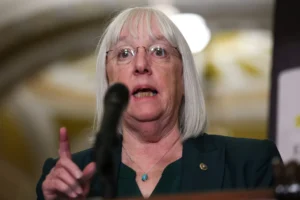A woman once branded “Australia’s worst mother” has had her convictions for killing her four children quashed.
The New South Wales Supreme Court ruled on Thursday that the evidence originally used to jail Kathleen Folbigg was “not reliable”.
The 56-year-old was pardoned and freed by the state government in June, after spending 20 years in prison.
Ms Folbigg welcomed the latest news but said proof of her innocence had been “ignored and dismissed” for decades.
“The system preferred to blame me rather than accept that sometimes children can and do die suddenly and unexpectedly and heartbreakingly,” she said outside court on Thursday.
Ms Folbigg’s case has been described as one of Australia’s greatest miscarriages of justice.
It concerned the deaths of her four infant children Caleb, Patrick, Sarah, and Laura – each of whom died suddenly between 1989 and 1999, aged between 19 days and 18 months. Prosecutors at her trial alleged she had smothered them.
The case relied on circumstantial evidence, using Ms Folbigg’s diaries – which were never examined by psychologists or psychiatrists – to paint her as an unstable mother, prone to rage.
In 2003, she was sentenced to 40 years in jail for the murders of Sarah, Patrick and Laura, and the manslaughter of Caleb.
It was later downgraded to 30 years on appeal, but Ms Folbigg lost a string of legal challenges that sought to overturn her convictions.
Earlier this year, a landmark inquiry into her case concluded there was reasonable doubt over her guilt, due to scientific findings that her children could have died of natural causes because of incredibly rare gene mutations.
And it was that “substantial and extensive body” of new evidence which led to Ms Folbigg being cleared of all charges on Thursday, Chief Justice Andrew Bell said.
Ms Folbigg’s legal team confirmed they would now seek compensation on her behalf, but did not say how much.
The case has captured global attention and led to accusations that Australia’s legal system is slow to respond to advanced science.
“I am grateful that updated science and genetics has given me answers as to how my children died,” Ms Folbigg said.
“However, even in 1999, we had legal answers to prove my innocence.
“[Prosecutors] took my words out of context and turned them against me… I hope that no-one else will ever have to suffer what I suffered.”
BBC



























